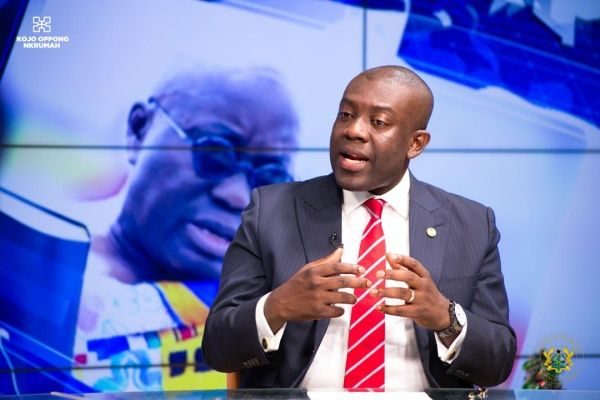Copyright ghanaguardian

Former Information Minister and Member of Parliament for Ofoase Ayirebi, Kojo Oppong Nkrumah, has cautioned the Mahama administration against what he describes as an excessive withdrawal of liquidity from the Ghanaian economy, warning that the move could stifle production, private sector growth, and job creation. Speaking on Face to Face on Channel One TV on Tuesday, October 28, 2025, Mr. Oppong Nkrumah criticised government’s decision to lock up about GH¢60 billion at the Bank of Ghana under its ongoing sterilisation programme, saying the policy could have long-term negative implications for the economy. “This government has continued with a tight monetary policy until recently, when it was eased slightly. Now they have decided to embark on sterilisation. It may help in the short term, but in the long term, it comes with its own consequences,” he explained. The former minister revealed that authorities have already withdrawn GH¢60 billion from circulation, arguing that such a large-scale liquidity mop-up reduces funds available for business investment and production. “They have collected 60 billion cedis from the Ghanaian economy because they believe it is excess liquidity, and they have parked it at the Central Bank. That money is now unavailable to stimulate demand or support production,” he said. While acknowledging that sterilisation is a recognised monetary policy tool, Mr. Oppong Nkrumah said the extent of its application under the current government is excessive and could slow economic activity. “We may all agree that sterilisation is necessary, but this extent is too much. That amount of money could be channelled through other mechanisms to fund productive ventures, create jobs, and drive growth,” he added. Mr. Oppong Nkrumah contrasted the current administration’s policy stance with that of the Akufo-Addo government, under which he served. He noted that while tight monetary measures were implemented during the global cost-of-living crisis in 2020, they were gradually eased after inflation dropped significantly. “During our time, inflation fell from about 54 percent at its peak to around 23 percent by 2024. We tightened policy when necessary, but we also ensured liquidity to support production and growth,” he stated. The Ofoase Ayirebi MP stressed that while controlling inflation remains important, the government must now shift focus toward stimulating production, supporting businesses, and creating jobs to secure long-term economic stability. “Inflation management is critical, but the next phase of economic recovery must prioritise production and employment. Without that, the economy risks stagnation,” he concluded.



